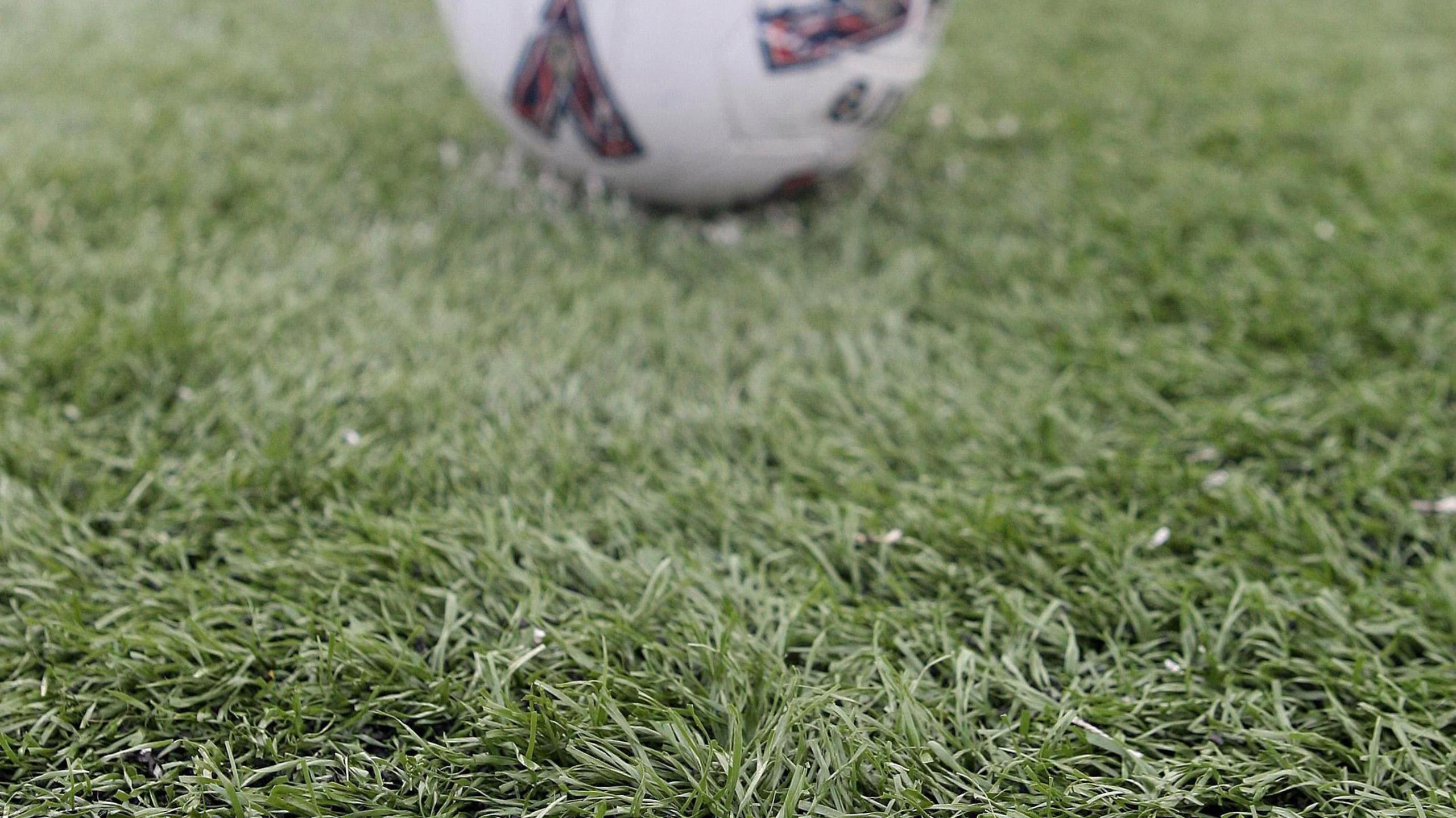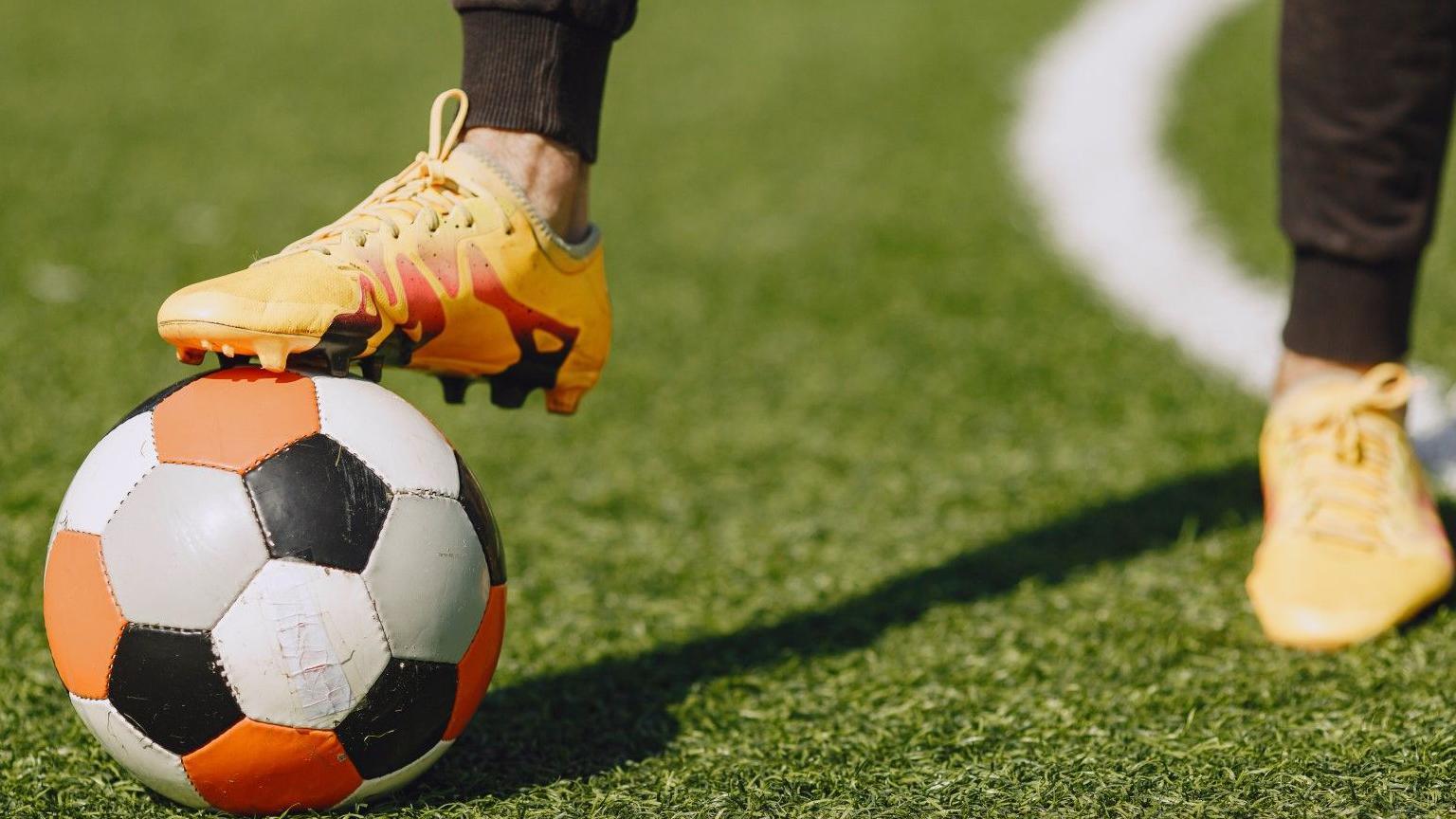Call for 3G pitches in Jersey to be replaced

Rubber crumb is often used on top of 3G pitches to mimic the traction of natural grass
- Published
An environmental campaigner has called for no more 3G pitches to be installed in Jersey.
Nigel Jones said there was growing evidence the rubber crumb used as a top layer on the pitches, which mimics the traction from natural grass, could cause health problems and pollute rivers and waterways.
The Government of Jersey said: "We fully support the potential use of more sustainable alternatives to rubber infill."
Industry body the Synthetic Turf Council denied there was a risk with European-sourced rubber infill and any ban would seriously harm sports provision.
'Take a stand'
It comes after a report by the University of Stirling, external concluded crumb rubber should be "phased out".
A joint statement from Sport England, the Department for Culture, Media and Sport and other sporting organisations acknowledged the concerns over the environmental impact of 3G pitches.
It said: "These have mostly related to microplastics in the form of rubber infill getting into the ecosystem and the need for greater focus on the end-of-life recycling of pitches."
Mr Jones called for people to "take a stand" on the issue.
"If this stuff is causing these harms then we have to stop using them," he said.
Prof Andrew Watterson, from the University of Stirling, said: "You can absorb the crumb through the skin. You can ingest it or you could inhale it.
"There may be more and more problems linked to these exposures."
'Balanced' approach
The European Union voted to ban rubber crumb infill from sports pitches in 2031 but neither the UK nor Scottish governments have followed suit.
David Kennedy, from Sport Jersey, said 3G pitches were well-utilised in the island.
"There's obviously some concerns round about the impact of 3G pitches," he said.
"I think we will always balance it with the impact 3G pitches have on sport in the community and the health of our island because currently the stock of 3G pitches that we have provides hundreds of hours for thousands of islanders each week."
The Jersey FA is aiming to build two new 3G pitches by 2028 as part of its strategy for the future of football but it was unknown whether they would have a rubber crumb surface at this stage.
Abandoned matches
Tim Pryor, Jersey FA's chief executive, said artificial pitches would cut down on the number of matches that are postponed
"We know that local clubs struggle to get training slots on the current non-grass facilities, at the likes of Springfield Stadium, Haute Vallee, and Oakfield," he said.
"They are heavily used particularly in the evenings, which is a positive, but we need to improve the availability of training facilities so we can get more people playing.
"We also want to reduce the number of matches postponed because of waterlogged grass pitches in bad weather.
"New 3G pitches would allow us to play match after match after match, even after weeks of rain.
"Lack of access to good-quality pitches can be one of the biggest barriers to playing football."
Natural products
Stefan Diderich, chief executive at EMEA Synthetic Turf Council, said: "We fully support the use of sustainable alternatives to granular rubber infill, with a number of natural infills such as cork, processed olive stones and wood chip already available on today's market."
The Government of Jersey said it also supported alternatives to rubber infill.
"Further studies will need to be thoroughly explored with regards to their viability," it said.
"It is important to note that EU studies show good pitch management and design can reduce rubber crumb infill loss by 98%."
Follow BBC Jersey on X, external and Facebook, external. Send your story ideas to channel.islands@bbc.co.uk, external.
- Published22 March 2024
